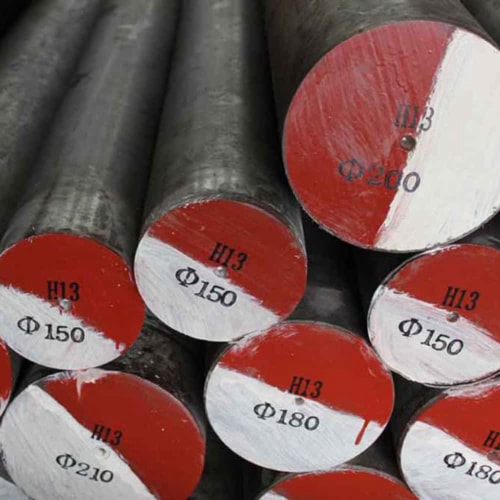Introduction

In the realm of industrial applications, the choice of material is crucial for ensuring optimal performance, durability, and cost-effectiveness. Among the plethora of options available, 1.2344 tool steel stands out for its exceptional properties and versatility. In this blog post, we delve into the various advantages of employing 1.2344 tool steel in industrial settings, exploring its unique characteristics and highlighting its significance in diverse applications.
1.2344 Tool Steel Superior Hardness and Wear Resistance
One of the most notable advantages of 1.2344 tool steel is its exceptional hardness and wear resistance. With a high level of carbon and chromium content, this steel alloy exhibits remarkable strength and durability, making it highly resistant to abrasion, deformation, and wear even under the most demanding operating conditions. This superior hardness ensures prolonged tool life and minimizes the need for frequent replacements, resulting in significant cost savings for industrial operations.
Excellent Thermal Stability and Heat Resistance
Another key advantage of 1.2344 tool steel is its excellent thermal stability and heat resistance. This steel alloy can withstand high temperatures without losing its mechanical properties, making it ideal for applications that involve exposure to elevated heat levels, such as hot forging, die casting, and extrusion processes. Its ability to maintain dimensional stability and hardness at high temperatures ensures consistent performance and prevents premature tool failure, enhancing overall productivity and efficiency.
Good Toughness and Impact Strength
In addition to its impressive hardness and heat resistance, 1.2344 tool steel also exhibits good toughness and impact strength. This combination of properties enables it to withstand sudden shocks, vibrations, and heavy loads without fracturing or deforming, ensuring reliable performance in dynamic industrial environments. Whether it’s punching, shearing, or forming operations, this steel alloy provides the necessary toughness to handle challenging tasks effectively, contributing to enhanced operational reliability and safety.
Versatility and Wide Range of Applications
One of the most significant advantages of 1.2344 tool steel is its versatility and suitability for a wide range of industrial applications. From die casting and plastic molding to hot stamping and extrusion, this steel alloy finds extensive use across various manufacturing sectors, including automotive, aerospace, and tooling industries. Its ability to deliver consistent performance across diverse applications makes it a preferred choice for tool and die making, where precision, reliability, and durability are paramount.
Cost-effectiveness and Long-term Value
Finally, 1.2344 tool steel offers excellent cost-effectiveness and long-term value for industrial applications. While it may entail a higher initial investment compared to some conventional materials, its superior performance, extended tool life, and reduced maintenance requirements translate into significant savings over the long term. By minimizing downtime, optimizing productivity, and lowering operational costs, this steel alloy delivers substantial value to manufacturers, ensuring a high return on investment and sustainable profitability.
Comparison of Mechanical Properties

| Property | 1.2344 Tool Steel | Standard Carbon Steel | Stainless Steel |
|---|---|---|---|
| Hardness (HRC) | 52-56 | 20-30 | 50-60 |
| Wear Resistance | High | Moderate | Moderate |
| Heat Resistance | Excellent | Low | High |
| Toughness | Good | Low | Moderate |
| Impact Strength | High | Low | Moderate |
Conclusion
In conclusion, 1.2344 tool steel offers a myriad of advantages that make it an indispensable material in industrial applications. From its superior hardness and wear resistance to its excellent thermal stability and versatility, this steel alloy excels in diverse manufacturing environments, delivering consistent performance, reliability, and cost-effectiveness. By choosing 1.2344 tool steel for their tooling and machining needs, manufacturers can enhance productivity, optimize operational efficiency, and achieve greater success in today’s competitive market landscape.
FAQ
Q:What are the primary applications of 1.2344 tool steel?
A:1.2344 tool steel is commonly used in applications such as die casting, hot forging, plastic molding, extrusion, and tool and die making across various industries, including automotive, aerospace, and manufacturing.
Q:How does 1.2344 tool steel compare to other materials in terms of mechanical properties?
A:Compared to standard carbon steel and stainless steel, 1.2344 tool steel offers superior hardness, wear resistance, heat resistance, toughness, and impact strength, making it a preferred choice for demanding industrial applications.
Q:What are the key factors to consider when selecting 1.2344 tool steel for a specific application?
A:When selecting 1.2344 tool steel, it’s essential to consider factors such as the operating environment, required mechanical properties, tooling design, and cost considerations to ensure optimal performance and longevity in the intended application.

